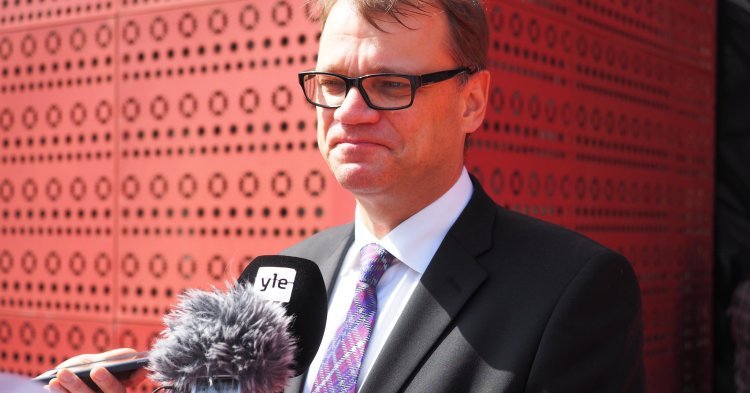Did the Prime Minister threaten press freedom?
Sipilä has had a complicated relationship with the media throughout his term as the Prime Minister. A former businessman, Sipilä hasn’t spent as much time in the public eye as most of the other leading politicians, which has been said to contribute to these strained relations.
The Prime Minister’s background in business played a central role in the showdown between him and YLE. Sipilä wasn’t fond of YLE’s reporting on public funding for enterprises in which the Prime Minister potentially has a personal financial interest. He argued that he was not given a due opportunity to defend his viewpoint before an article on the topic had been published. Sipilä then proceeded to forward aggressive citizen feedback directed against him to the broadcaster, intending to demonstrate the effects of biased journalism. Finally he said that he had “zero respect” for the broadcaster, a comment for which he later apologised.
Public outcry ensued. It was claimed that the Prime Minister had tried to pressure the public broadcaster to report on him in a certain manner, thus acting against the principle of freedom of the press. What’s more, some journalists working for YLE had reportedly received written warnings against covering the case in the media. Two journalists, one of whom held a high-profile post in the YLE newsroom, resigned. Both the chief editor of the YLE news service and the Prime Minister denied any attempts to undermine freedom of the press.
What can be gathered from the sequence of events is that questions related to conflicts of interest are sensitive to the Prime Minister. Also, allegations of biased reporting and suppression of some pertinent stories dealt a blow to the international reputation of Finland, the country that has consistently ranked world no. 1 in the press freedom index of Reporters Without Borders.
Outcry is better than silence
In the aftermath of this media spat, gaining coverage in national and international press, Finns questioned whether their far-reaching press freedom was being questioned. It is true that if one were made to guess where the sequence of events took place, the world leader in press freedom wouldn’t come to one’s mind first. However, there are reasons to believe that the situation isn’t all that alarming.
As with democracy, free speech is best protected when threats to it are promptly detected and called out. The incident between the Prime Minister and the public broadcaster dominated the headlines for days, not least on the website of YLE itself. If that had not been the case and there had been no public debate, that would have been worrying.
Beside the battle over YLE’s reporting on the Prime Minister, another potential threat to free speech in Finland has been reported recently. The Finnish Defence Forces are in the process of updating their rules imposed on professional soldiers serving in the military. The instructions comprise all aspects of a soldier’s life, including how one should dress on different occasions, but the point that gained attention in the media concerned soldiers’ right to participate in the political life. According to the document, a professional soldier should refrain from interfering in debates pertaining to party politics. In 1999 the Parliament deemed a similar restriction to be too vague and expansive, and thus against the Constitution and Finland’s international human rights obligations. The Finnish Officers’ Union criticised the new restriction, and the Parliament is currently debating the topic.
The row over soldiers’ freedom of speech is another example of a potential problem being brought into public discussion rather than brushed under the carpet. No society can avoid problems and animosity – what makes a society great is its ability to tackle arising problems before they develop into threats to its guiding values. It remains to be seen whether Finland maintains its place at the very top of international rankings on its hundredth anniversary, but one can’t claim Finland isn’t doing something right. Free speech is taken seriously in Finland, like it should be in a country that aspires to be the best in the world.


Follow the comments: |
|
